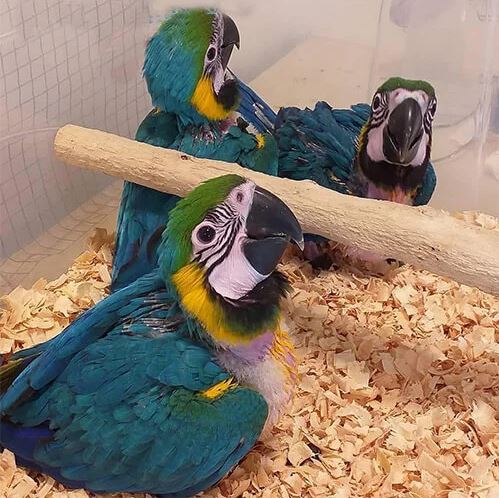Innovative Technology in Parrot Egg Incubation

The field of aviculture is continually evolving, and recent technological advancements have revolutionized parrot egg incubation. From sophisticated incubators to precise monitoring gadgets, technology offers tools that enhance the effectiveness and efficiency of the hatching process.Modern incubators are at the forefront of this technological innovation. No longer limited to manual adjustments, today's incubators feature integrated systems that automate critical functions such as temperature regulation, humidity control, and egg rotation.
These automated features reduce the risk of human error, ensuring optimal conditions for egg development.Temperature control is crucial for successful incubation, with modern incubators offering precise digital settings to maintain the required ambient temperature. They often include temperature alarms that alert the breeder to any fluctuations, allowing for immediate corrective action.
This level of precision is essential, given that even slight deviations can impact embryo development.Humidity levels, equally important, are now managed by advanced incubators with built-in sensors and automated humidifiers fertile parrot eggs for sale in israel. These systems maintain consistent humidity, adapting to changes throughout the incubation cycle. Such technology minimizes the potential for dehydration or other issues that could compromise hatching success.
Egg rotation, traditionally performed manually, is now commonly automated in advanced incubators. Automated turning mechanisms simulate the natural movement of eggs in the wild, promoting even embryonic development. This not only saves time but also enhances the quality of the incubation process.In addition to these core functions, innovative monitoring devices provide breeders with invaluable insights.
High-resolution candling equipment allows for detailed observation of the egg's interior, enabling the identification of potential issues well before hatching. Digital record-keeping systems store data such as hatch dates and environmental conditions, facilitating better-informed breeding strategies.Mobile applications have further integrated technology into parrot egg incubation. Some incubators now come with companion apps that allow breeders to monitor and control settings remotely.
This flexibility ensures that breeders are always informed, whether they are on-site or away from the premises.Despite the plethora of technological tools available, successful incubation still relies on the breeder's knowledge and experience. While technology can streamline processes and reduce manual workload, understanding the specific needs of different parrot species remains vital.
Regularly refreshing knowledge and staying informed about new research are important complements to the advantages provided by technology.These advancements also raise practical and ethical questions about access and affordability. While high-tech solutions offer great benefits, not all breeders may have access to such technology due to financial constraints.
Advocacy for diverse, affordable solutions is important for widespread adoption and ensuring that technology enhances aviculture universally.In conclusion, technology has significantly transformed parrot egg incubation, providing tools that enhance precision and effectiveness. As technology continues to evolve, it promises further improvements, supporting breeders in their quest to nurture healthy, vibrant generations of parrots.
